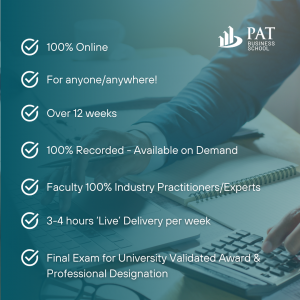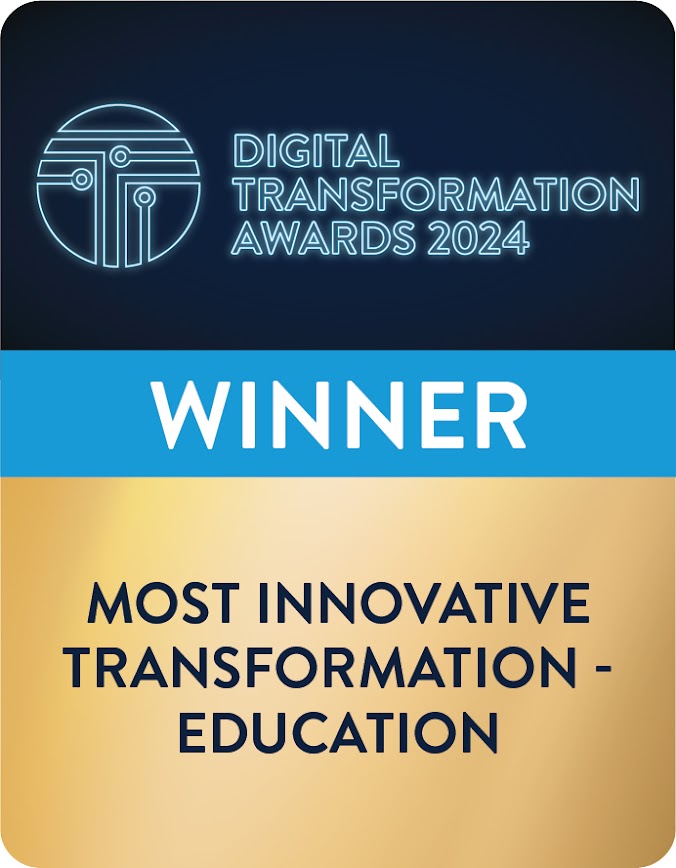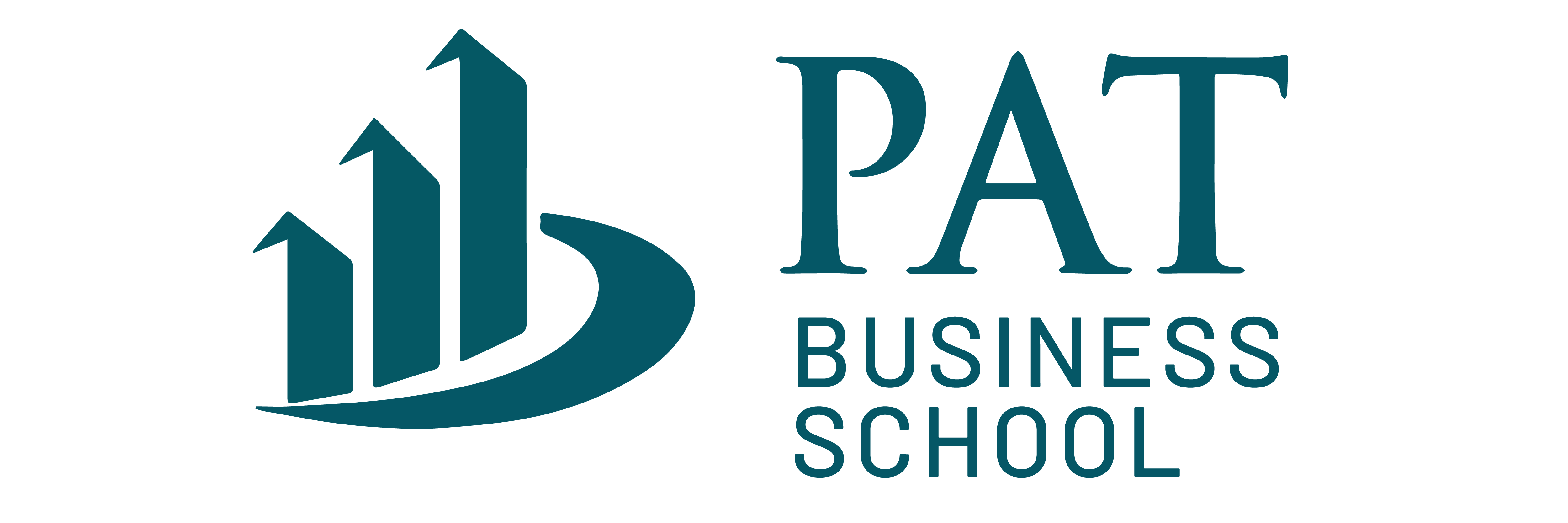Description
Certified Digital Operational Resilience Act Professional (DORAP)

Programme Certification
This programme has be validated by Technological University Dublin, ensuring it meets the highest academic and professional standards. It will be recognized globally, equipping professionals with credentials to advance in international finance and regulatory compliance roles.
Programme Start Date
TBC
Programme Fee
€2,250
Programme Delivery
- Total Duration: 48 hours (12 blocks @ 4 hours per block) over 12 weeks
- Blended – a mixture of live-on-line tutorials, and on demand content. The blended delivery modes can be be-spoked to the preferred mode of the programme’s delivery.
Entry Requirements
A minimum Level 7 Ordinary bachelor’s degree in a cognate area such as business, finance or technology.
OR
A minimum Level 7 Ordinary bachelor’s degree in a non-cognate accompanied by a minimum of three years’ work experience in the financial services sector.
Applicants who do not have a Level 7 qualification and who have at least 5 years’ work experience.
OR
Applicants may also be considered through the University’s normal RPL procedures. Relevant professional experience may be considered, and individuals will be assessed on a case-by-case basis through the relevant RPL procedures.
Programme Overview
This programme aims to provide participants with a deep understanding of the regulatory requirements and business needs driving the focus on operational resilience, in addition to guiding the implementation and identifying the opportunities to develop and progress organisational information security. It prepares participants to identify critical compliance functions, develop effective operational programs, and ensure seamless integration of legacy systems with modern resilience standards.
Programme Objectives
- Understand the ‘Why’: Explore the regulatory imperatives under DORA and the business logic that drives the need for robust operational resilience frameworks.
- Identify Pivotal Functions: Pinpoint the critical functions and processes essential for achieving compliance with DORA and sustaining business operations under various scenarios.
- Establish Risk Management Frameworks: Equip participants with the knowledge and tools necessary to establish robust risk management frameworks that ensure operational resilience.
- Develop and Deliver Programs: Learn to design and implement comprehensive operational resilience programmes that align with both regulatory expectations and business objectives.
- Implement and Manage: Gain skills in effectively rolling out operational resilience strategies and managing the ongoing programme to ensure adaptability and compliance.
- Integrate Legacy Systems: Address the challenges of aligning legacy systems with new requirements, ensuring they contribute to rather than hinder operational resilience.
Indicative Programme Syllabus
Block 1: Introduction to Digital Operational Regulatory Requirements (DORA)
- Objective: Gain an overview of DORA, its significance, and its implications for financial institutions.
- Topics Covered:
- Introduction to DORA’s scope and objectives.
- Overview of the European financial regulatory landscape.
- Relevant DORA Articles: General introduction and scope (Art. 1-3).
- Activities: Lecture, discussion, and initial reading assignment on the regulatory text.
Block 2: Risk Management and Business Impact Assessments
- Objective: Understand how to conduct business impact assessments under DORA requirements.
- Topics Covered:
- Detailed exploration of DORA requirements for business impact assessments.
- Practical exercises in identifying critical functions and essential services.
- Relevant DORA Articles: Business continuity and disaster recovery (Art. 10-12).
- Activities: Case studies and interactive workshops.
Block 3: Asset Management (Prioritization)
- Objective: Learn the principles of asset prioritization and management in compliance with DORA.
- Topics Covered:
- Techniques for asset inventory management and prioritization.
- Impact of asset management on operational resilience.
- Relevant DORA Articles: Risk management provisions (Art. 4-9).
- Activities: Group breakout session on developing an asset management plan.
Blocks 4-5: Risk Management Strategies for Operational Resilience
- Objective: Develop comprehensive risk management strategies that align with DORA.
- Topics Covered:
- Risk identification, assessment, and mitigation strategies.
- Integration of risk management into the organizational culture.
- Relevant DORA Articles: ICT risk management requirements (Art. 4-9).
- Activities: Simulations and role-playing scenarios.
Blocks 6-7: Vendor Evaluation and Outsourcing Risk Management
- Objective: Master DORA’s requirements for managing risks related to outsourcing and third-party vendors.
- Topics Covered:
- Vendor evaluation processes.
- Best practices in outsourcing risk management.
- Relevant DORA Articles: Oversight framework of ICT third-party providers (Art. 25-34).
- Activities: Workshop on vendor risk assessment tools.
Block 8: Monitoring & Metrics (ISO 9001)
- Objective: Apply ISO 9001 standards to operational resilience monitoring systems required by DORA.
- Topics Covered:
- Aligning ISO 9001 with DORA’s monitoring requirements.
- Setting up and using metrics to monitor resilience.
- Relevant DORA Articles: Incident reporting (Art. 20-24).
- Activities: Live demo of monitoring systems and metrics setup.
Block 9: Restoring Legacy Environments
- Objective: Align legacy systems with modern digital operational resilience standards.
- Topics Covered:
- Challenges and strategies for updating legacy systems.
- Compliance implications for legacy infrastructures.
- Relevant DORA Articles: ICT-related incident management (Art. 20-24).
- Activities: Practical exercises on legacy system integration.
Blocks 10: Emerging Trends in Operational Risk Management
- Objective: Explore current and emerging trends affecting operational resilience.
- Topics Covered:
- New technologies and their impacts on operational resilience.
- Future challenges in operational risk management.
- Relevant DORA Articles: General framework for testing digital operational resilience (Art. 28-31).
- Activities: Guest lectures from industry experts, group discussions.
Blocks 11-12: Implementing and Managing Comprehensive Resilience Programs
- Objective: Learn to implement and manage a resilient operational programme across an organization.
- Topics Covered:
- Strategies for programme implementation and management.
- Ensuring alignment with DORA through continuous improvement and feedback.
- Relevant DORA Articles: Application of a holistic management approach as per DORA requirements (Art. 4-9, 20-24).
- Activities: Participants design, implement, and present an operational resilience program.
Assessment
Participants will be assessed through a mix of quizzes, project work, and a final computer based, proctored exam. Successful completion will lead to certification that recognizes the participant’s ability to apply DORA principles effectively within their organizational roles.
This detailed mapping of programme content to DORA articles ensures that the participants can directly relate programme learnings to specific legal requirements,
Full-Length Mock Examination – 3 hours
- Learners will undertake a full-length mock examination
Review and Feedback on Mock Exam Performance
- Reviewing the mock examination
- Providing feedback to learners on their performance and areas of improvement
Final Proctored Examination – 3 hours
- Grading the final examination
- Providing structured feedback to learners on their performance to help improve their professional competencies
Contact Details
Get in touch for more details [email protected] or call +353 87 945 2484







